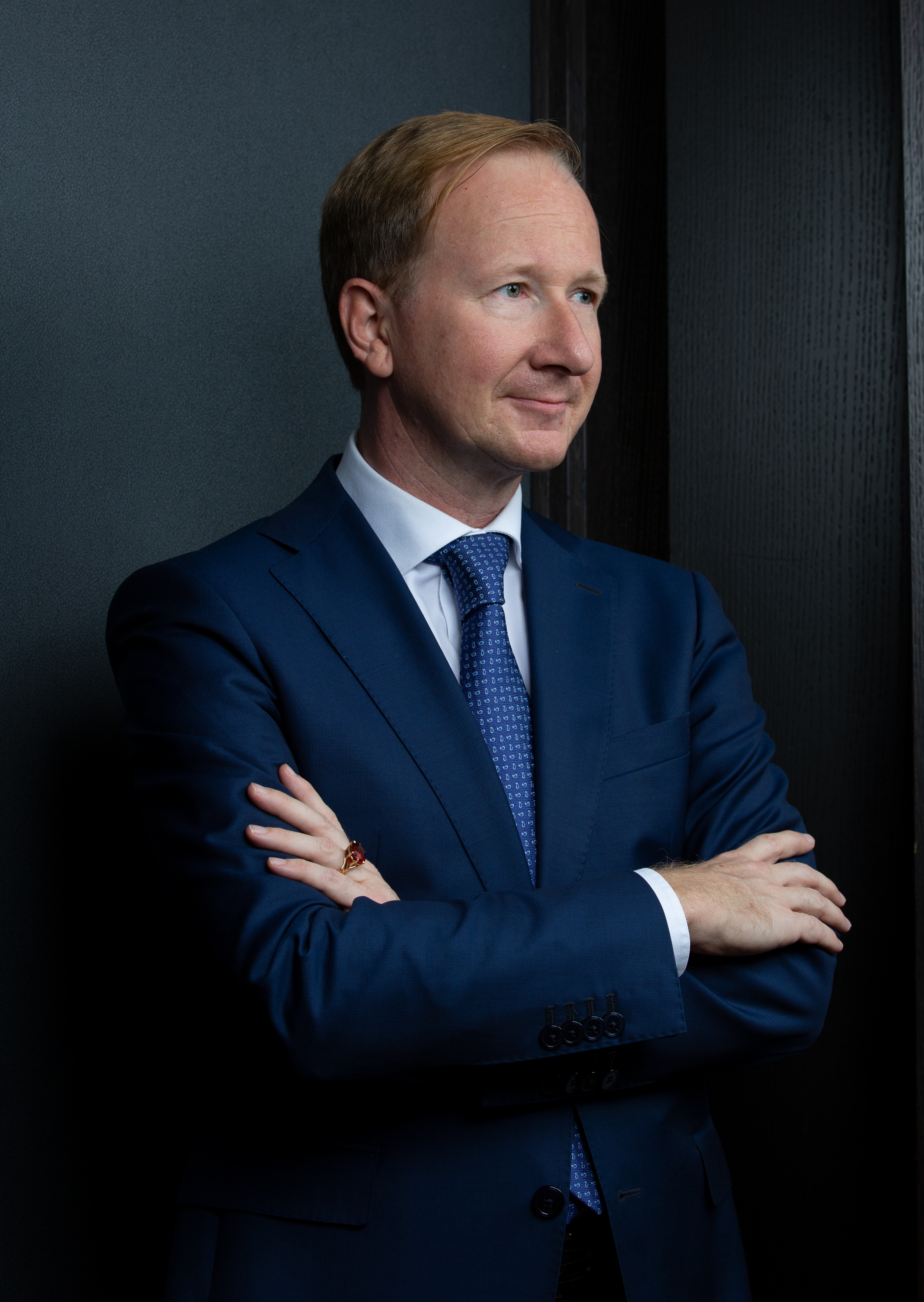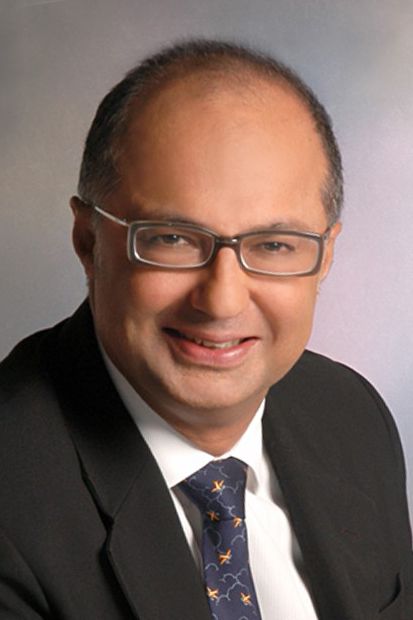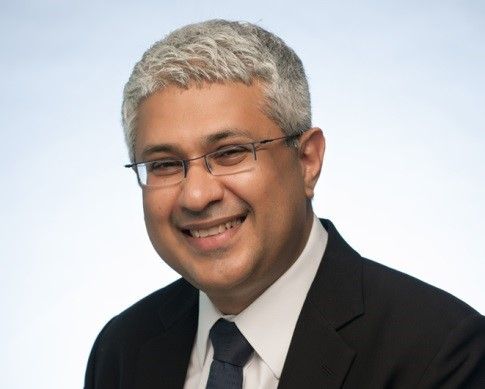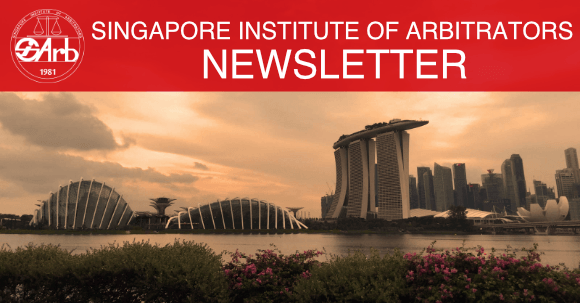Newsletters
16 December 2019
 In this issue of our newsletter, we are pleased to have a colleague from Austria, Mag. Ralph Kilches, share his views on the current situation of arbitration in Europe in an environment where arbitration in Asia is seeing growth, and also give some insight into what makes him tick.
In this issue of our newsletter, we are pleased to have a colleague from Austria, Mag. Ralph Kilches, share his views on the current situation of arbitration in Europe in an environment where arbitration in Asia is seeing growth, and also give some insight into what makes him tick.
You are the founder of the law firm Kilches Legal in Vienna, Austria. Could you please give a brief overview of your career and introduce your law firm?
I studied law and some semesters translation sciences (English/French) at the University of Graz. Beside my studies I worked as freelancer journalist for IDG Computer World (Vi-enna). After I completed my legal degree (one semester over minimum time) I had to spent a year at the court working as an assistant for the judge. During that year I wrote a commentary on European VAT Tax Law. In 1999, I joined Freshfields in Vienna as an as-sociate. I became author of a regular column in one of the leading tax journals (Fi-nanzjournal). I held seminars on E Commerce Law, Copyright Law and also Competition Law and I gave lectures on tax law issues at the Academy of Chartered Accountants. I changed from Freshfields to Schönherr in Vienna, another major law firm. Later I changed to a smaller lawfirm, passed the bar exam and founded finally in 2005 my own law firm. I operated in diverse cooperations. In 2006, I was lucky being the leading counsel of an ICC arbitration case in the electricity industry. This case ran over several years and we were quite successful. I joined diverse arbitration organisations and institutions, attended lectures seminars and courses on diverse international law topics (also Model Contract Course of AIPN); wrote several papers and continued to hold courses. In 2009, I got my first ap-pointment as Sole Arbitrator by ICC. Since 2010, I have participated in the VIS Moot as an arbitrator, since 2011 also in the VIS East. I was interested to see the interaction of civil law and common law in Asia. In 2011, I was appointed by ICC Austria as delegate to the Commission on Arbitration. From 2010 onwards, my law firm has been growing in num-bers of employees, cooperations, etc. In 2016, I passed the CIArb course (accelerated route) and became Fellow of CIArb. This further helped to grow my professional network. I serve clients with commodity trading disputes mainly in the steel industry and with bio food. Also, agency contracts, joint ventures and mining contracts are important areas of my work. 60% of my work is state court litigation from construction cases, real estate to labor law, intellectual property, competition law and also shareholder disputes. I deal rarely with criminal law cases. We have an established practice of administrative law, constitu-tional law and human rights. We have a core of permanent clients, cases covered by legal costs insurance and project consulting work involving hotels, banks, software development and mining.
What do you think about the current situation of arbitration in Europe and Asia? In contrast to Europe it seems that arbitration is currently booming in Asia. Recently the ICC launched an office in Singapore and the SIAC had a record of 452 new cases in 2017. Do you think this trend will continue?
In Europe you find a leading national arbitration institution in almost every country. Most popular is ICC arbitration, followed by LCIA and Switzerland as seat for arbitration general-ly. Hybrid dispute resolution involving mediation and arbitration becomes more and more popular. Third party funding brings a new growth to arbitration. The arbitration business is stable with a light growth despite of the fact that the internal state court and enforcement system in the EU has taken a relevant load of cases from arbitration. Specialist arbitration mechanisms exist in most fields of commodity trading, to name GAFTA and FOSFA first, but not to forget the numerous arbitration institutions at the local stock exchanges. This is a world of its own. Investment treaty arbitration in the EU is terminated by 6.12.2019 after all EU-member states (including UK) have terminated their BITs. In the trade contracts be-tween the EU and third countries an investment court (ISDS) has been established. We wait for the development of its practice. In Asia the local development and tradition to use arbitration is quite different and not so uniform. Dubai and Abu Dhabi have a long practice with a big arbitration community. Singapore assumes a leading role with international cas-es, followed by Hong Kong in my view. Mainland China has a very long tradition in arbitra-tion and several of the numerous arbitration centers focus also on foreign related disputes. However, the Chinese civil law and also the CISG jurisprudence p.ex. of CIETAC might not be so different from European law systems but the mistrust choosing state courts or arbitration institutions “of the other party” is a major hurdle. I wonder why no institution of-fers certificates combining Chinese and European business and legal culture for arbitra-tors. Singapore as a reliable hub for arbitration will grow in the future. Singapore is well known for its legal culture (quality and anti-corruption) and as a neutral place. Hong Kong has more opportunities because the investment transaction volume going through Hong Kong is enormous. But the political situation is not easy. An effective, independent dispute resolution system based on arbitration is crucial for the economy and vice versa. Other arbitration hubs like South Korea are rising. But similar as in Europe, some local institutions will have an international focus but will not be regarded as a truly international arbitration center. Malaysia is an example how much can be done successfully within a short time; construction adjudication is extremely successful in Malaysia at the AIAC (the former KLRCA). Other countries support arbitration recently like Thailand p.ex. Thailand is very active in the UNCITRAL-Commission, too. Japan’s Ministry of Justice has been taking new measures to make arbitration in Japan more popular and international. Singapore has a leading role and can attract even more international cases.
The Chinese Belt and Road Initiative (“BRI”) is currently a major topic in international arbi-tration. Do you believe that the BRI will lead to a major increase in arbitration cases?
The financing and construction background of the BRI will not produce a new hype of caseload in my opinion. I have not yet seen any evidence or studies, whether it is usual to agree to arbitration in those BRI-contracts. I have also not heard about specific BRI-related problems. The problems related to the BRI known in public are usually related to the host country. China has only been involved in a handful of international investment cases ; the same is true for Chinese companies. Europe and European parties (claimants) on the oth-er hand are the main “customer” of ICSID and investment arbitration. So my answer is “no”.
How do you assess the Chinese establishment of an international commercial court to re-solve disputes arising from its BRI?
A specialized court will only be used and trusted if a reliable permanent legal practice to-gether with transparence is offered. If such an institution shall be successful, its members and its legal culture must be seen as international and competent depending on the kind of dispute. The BRI includes infrastructure, construction, transport, financing and many more aspects. If the competence and reputation of the judges/arbitrators are not outstanding, the parties will use the state courts, which might be a reasonable choice.
How do you see Austria’s role with regard to the BRI in the future?
Austria by its location can be an important partner. BRI has arrived in Greece, Hungary and Eastern Europe in general. I think that the new trade agreement can bring new pro-jects and new business. However, we have to take into account that trade agreement ne-gotiations span over years. A fast conclusion of a China-EU trade agreement can be very helpful to avoid economic decline in Europe and also China. Austria is driven by a high rate of exports. Therefore, Austria has a clear task and a strong voice to support interna-tional trade. Austria should be seen as an effective hub to come to Europe. Innovation is generally very strong in Austria and the skills and the education level are high. However, there is always a need to improve in order to stay amonst the leading nations. The infra-structure in Austria is better in comparison to other EU countriesand more investments are carried out.
Considering the well-developed case law and the pro-arbitration stance of courts in Singa-pore, do you view Singapore as the ideal neutral seat for arbitrations between European and Asian parties (especially regarding BRI-related disputes)?
Yes, I recommend Singapore for arbitrations (SIAC and ICC).
The two most developed arbitration hubs in Asia are Singapore and Hong Kong. Both Sin-gapore and Hong Kong are common law jurisdictions. Consequently, arbitrations and arbi-trator panels in the region are dominated by lawyers with a common law background. Are more arbitrators with a civil law background required in Asia considering that (i) so many Asian countries (e.g. mainland China, Japan, Korea, Thailand, Vietnam etc) are civil law jurisdictions and (ii) an increasing number of BRI-related disputes will involve companies from countries with a civil law background?
Being a civil law lawyer, my arbitration practice from the beginning has always been linked to common law. Both successful arbitrators and successful counsels in the international field have to have specific knowledge of both systems. More importantly, as a counsel and arbitrator it helps you to have knowledge in the relevant industry. I handle construction cases before state courts and arbitral tribunals. In arbitrations, I frequently deal with com-mon law cases. If you have high developed analytic skills and like to work in different legal systems, arbitration is your profession. The VIS Moot helped me to understand the differ-ent methods to argue cases under civil law and common law. Knowing different legal sys-tems and cultures does not mean to produce a mixture of law in your submission or or in your arbitral award. The substantive law chosen by the parties has to be applied. However, the losing party must understand the process and the reasoning behind the decision.
The Arb-Med-Arb procedure is one of the latest trends in dispute resolution. What is your opinion about Arb-Med-Arb? For which types of cases is the Arb-Med-Arb procedure ap-pealing / recommended?
I doubt, that such agreements are workable generally. Med-Arb has created a lot of issues, especially if the clauses are not drafted diligently. The counsels must have similar experi-ence with such practices and enough personal influence on their parties. I see an oppor-tunity for more adjudication-arbitration, generally. The general trend are faster arbitration procedures and lower costs with high qualified adjudicators/arbitrators and counsels. The high costs come from the counsels’ part, who have also the main workload to bear. This is also true for state court procedures. State court procedure is more standardized which saves time and money. But state court procedures have their limits, also in capacity of availability of the judges and also the knowledge needed for different kinds of dispute. For specialized disputes adjudication and arbitration have a clear solution. The more the arbi-tration institutions are comparable with regard to rules and costs, the more it becomes im-portant that they promote the skills of the arbitrators who are available on their panels. A concern for arbitration is the quality control of the decision. UNCITRAL is currently also working on an appeal mechanism in ISDS; arbitration might profit from the results.
23 September 2019

In each issue of our newsletter, we interview an SIArb member to get their views on the alternative dispute resolution scene in Singapore, and to obtain some insight into what makes them tick.
In this issue, we interview Mr. Naresh Mahtani .
How would you describe yourself in three words?
Alive, Aware and Happy.
In the course of your work, do you notice a trend in clients preferring arbitration over litigation as a form of dispute resolution?
Yes, as there is more flexibility in procedures and timetables, and less formality in arbitrations.
What is the most memorable arbitration or arbitration related matter that you were involved in, and why?
They are all memorable, as I’ve learnt something new in every case, big or small. There is a construction case, early in my career (late 1980s into the 1990s), in which I was lead counsel in about 10 arbitrations spanning over 10 years and numerous forays to the court for all sorts of applications during that same time – all arising from one huge project! I was thrown into the deep end, as I had to face a number of much more senior experienced counsel representing the other parties almost every other month during that period, and there were very few construction and arbitration textbooks and very few Singapore court authorities on these subjects at that time to learn from. I barely had time to breathe or had any full weekends during those 10 years, but I learnt a lifetime of lessons!
What advice do you have for a young fellow practitioner interested in arbitration work?
Be “around” and “be visible” and keep learning all the time, such as by attending courses, seminars and conferences. And keep making new friends - not merely for the sake of “business development”, but genuinely to learn and share experiences, not only about law but practical matters and general knowledge about each other’s lives, career and passions.
What are the challenges you think arbitration practitioners will face in the upcoming years?
I sum it up in one phrase – i.e. Keeping focussed. The Internet is a good thing and in my view, one of the greatest inventions ever. However, there is information overload all the time, from the outside as well as internally in cases (eg via lengthy submissions etc). It’s important to keep focussed on what is essential and not drown in information. Also, amidst all the new information, technology and law firms vying for work, in my view, it is important to remember not to drain energy by competing with others, but instead to remember to just keep focussed on your strengths and interests, and perhaps focus on one or several areas of practice and dispute resolution (be it construction, shipping, commodities, oil & gas etc). And also keeping focussed on a balanced life – to leave the sea of information sometimes, and have sufficient rest and play.
Do you see other forms of dispute resolution having a bigger role to play in assisting parties to resolve their disputes?
Yes, definitely. Especially mediation, adjudication, neutral evaluation, expert determination and probability analysis. These will and, in my view, must continue as hand-maidens or even replace arbitrations in some areas, to reduce the cost, stress and time involved in litigation and arbitrations.
Who is the person(s) who has had the greatest impact and/or influence on your career?
Mr. Leo Fernando, my trainee mentor, when I started practice in 1982. He was a brave and unconventional criminal lawyer, a sort of towering father figure, with whom I practised criminal law in the first three years of my career. He trusted me entirely to do the getting up for cases, and that helped build my confidence as a professional. I learnt three things from him which have been relevant in all my years at work in other areas – being overprepared on details of a case, being courageous (before judges, tribunals and with lawyers on the other side) and having a sense of humour all the time.
If you weren’t in your current profession, what profession would you be in?
An investigative journalist, as I enjoy writing and am always curious. Also maybe a music journalist, as I enjoy music (especially alternative and progressive), attending concerts, collecting records, and listening!.
PRESIDENT'S MESSAGE
September 2019

7 August 2019 will be a day etched in the memories of the Singapore legal community for years to come. The Singapore Mediation Convention progressed from a dream to a reality. 46 countries signed the Convention in Singapore on this historic day. Credit must go to all involved, particularly the Ministry of Law. I had the privilege of serving as a host to delegates and they were full of praise for Singapore.
Singapore now has a tripartite solution for international disputes. International Arbitration, International Mediation and International Litigation (through the SICC). End users have the benefit of choice and flexibility to utilise the most appropriate dispute resolution mechanism. Any “competition” between the tripartite offering can only be a good thing as standards and processes are constantly improved. Singapore has adopted a transnational approach for the various rules and processes, wherein best practices from both civil and common law traditions are reflected.
At the opening of Maxwell Suites on 8 August 2019, Minister of Law, K Shanmugam said that his Ministry would be reviewing whether conditional fee arrangements should be allowed. This is a welcome move that will enhance Singapore’s status as one of the Premier international arbitration destinations in the world. It will give multinational corporations an added option as regards fee arrangements so as to better manage risks allocation and access to justice. It will also benefit Singapore Lawyers who would be otherwise handicapped in the international arbitration arena by being unable to offer clients a conditional fee arrangement that is permitted in other leading arbitral seats such as London and Paris.
Some may wonder why conditional fee agreements are necessary since third party funding (TPF) is already allowed for international arbitration. A TPF arrangement is purely between two independent commercial entities. A TPF provides funding for the legal costs in exchange for a share in the damages that may be awarded. Such arrangements should not be undertaken by lawyers as they may run afoul of ethical issues relating to champerty or overcharging. It bears noting that the area for consideration by the Ministry of Law is conditional fee agreements as opposed to contingency fee arrangements. The latter would allow lawyers to take a share of the damages, hence raising ethical concerns. Conditional fee arrangements permit the lawyer to recover fees based on usual hourly rates plus an uplift or success fee only in the event they win. In Australia, the uplift is capped at 25%.
I am looking forward to our Annual Symposium at the iconic Old Parliament House on 26 November 2019 and our Annual Dinner on 27 November 2019. I hope to see you there.
President,
SIArb 2017-2019
28 June 2019

In each issue of our newsletter, we interview an SIArb member to get their views on the alternative dispute resolution scene in Singapore, and to obtain some insight into what makes them tick.
In this issue, we interview Ms. Monica Neo .
How would you describe yourself in three words?
Practical, Fair and Efficient.
How did you first get involved in arbitration work?
By accident. Just happened to be in a firm whose practice is 100% construction based and hence, involving arbitration work.
In the course of your work, do you notice a trend in clients preferring arbitration over litigation as a form of dispute resolution?
Not really in the context of litigation in Singapore courts given that Singapore courts are generally faster and hence, perceived to be cheaper than the arbitration process.
What is the most memorable arbitration or arbitration related matter that you were involved in, and why? Every case is unique and distinct to me. It is therefore almost impossible to say which is more memorable than the other.
As an arbitrator, what in your view are the key qualities or traits an arbitration counsel should possess when representing a party? Never assume that the Tribunal knows everything, and always be succinct and clear in responding to the Tribunal’s queries, and not to be evasive in one’s response.
What are the challenges you think arbitration practitioners will face in the upcoming years?
Time and cost, particularly in the current slow economy.
With the establishment of the Singapore International Mediation Centre and the introduction of the SIAC-SIMCArb-Med-Arb Protocol, do you see mediation as now having a bigger role to play in assisting parties to resolve their disputes?
This is inevitable given the current slow economy and increasing cost in arbitration.
Who is the person(s) who has had the greatest impact and/or influence on your career?
My father and brother when I was growing up, my pupil master and then my legal partner when I was starting on my legal career, and now my husband.
If you weren’t in your current profession, what profession would you be in?
I cannot imagine anything else.
Who would play you in a movie of your life?
Meryl Streep who played Margaret Thatcher in the movie.
What is one talent that not many people know you have?
Not only that I can cook but also I can cook pretty well.
Fill in the blank: “Arbitration is to dispute resolution as salt is to Meat.”
SIArb Newsletter Issue 31 ( 23 September 2019)
|
Latest Events
| 01 Jul 2024 SIArb Young Practitioners Network Mentoring Programme 2024 |
| 29 Aug 2024 - 29 Aug 2024 03:00PM - 07:00PM A Masterclass in Mediation Advocacy |
| 09 Oct 2024 - 09 Oct 2024 05:30PM - 07:15PM SIArb Lecture 2024 |
| 18 Oct 2024 - 19 Oct 2024 08:00AM - 12:00AM [IN-PERSON] SIArb Fellowship Assessment Course 2024 |
Site designed and maintained by Intellitrain Pte Ltd. Copyright © Singapore Institute of Arbitrators. All rights reserved.

